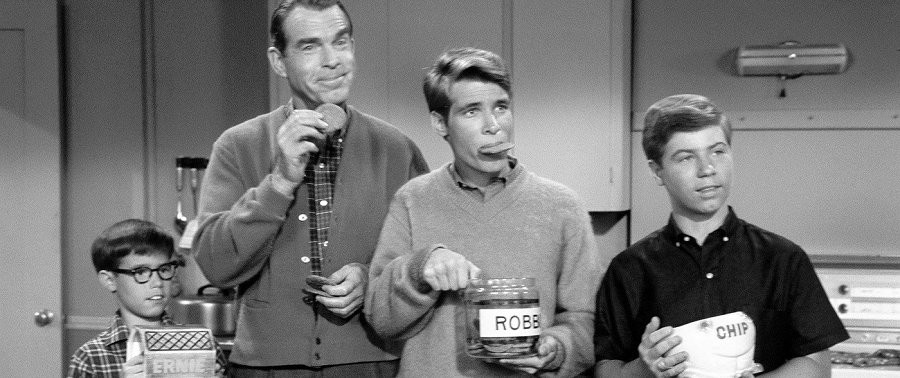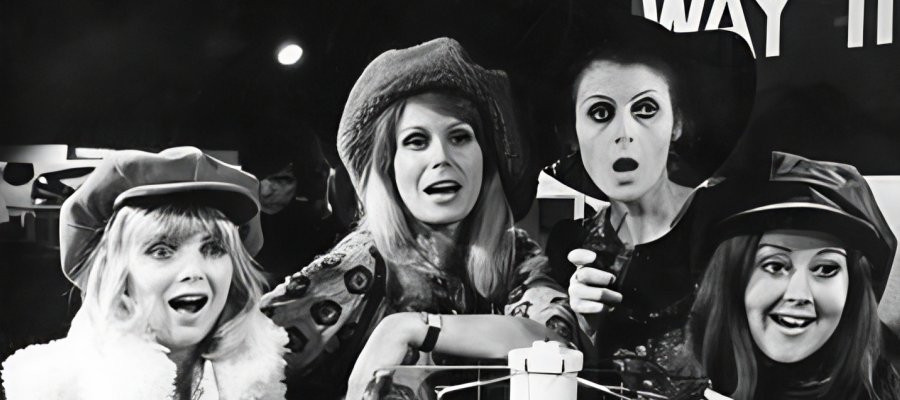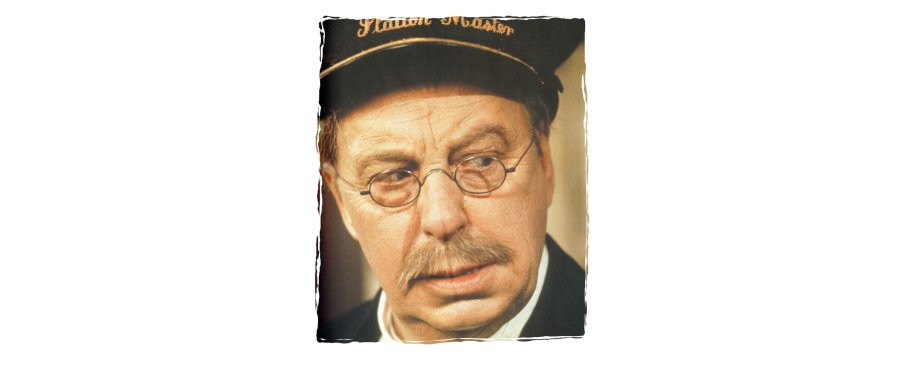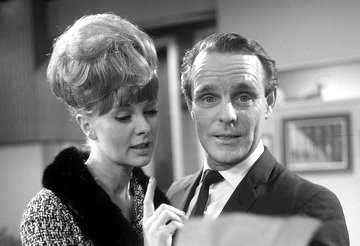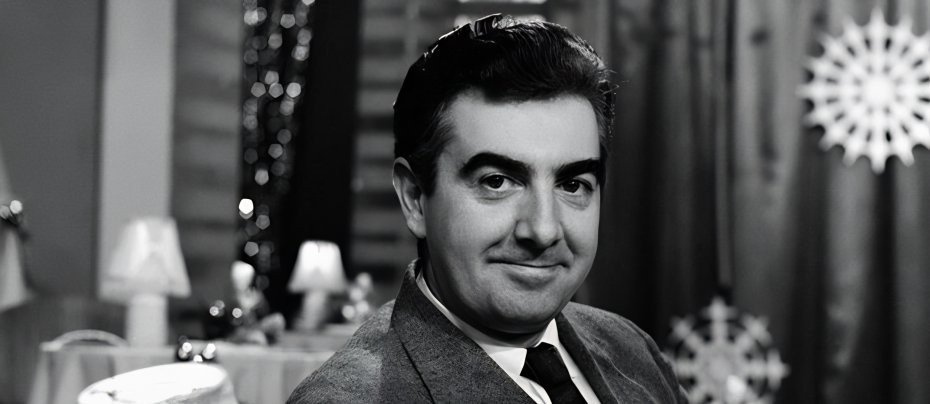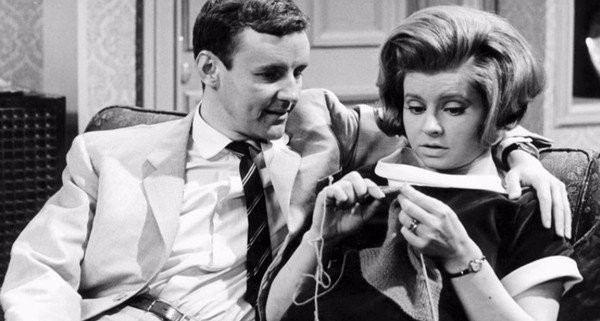
Romany Jones
1972 - United KingdomOne of the perils of a successful ensemble comedy is that the other work of its stars is often neglected in deference to the star’s biggest success. So it proved with James Beck, who had endeared himself to the nation as cheeky spiv Private Walker in Dad’s Army. Beck’s appeal was such that he was given his own series at the height of Dad’s Army’s success, appearing for two seasons in Romany Jones before his untimely death in 1973.
Beck had been targeted for the role of Private Walker. Jimmy Perry himself had designs on it, but Dad’s Army writing partner David Croft was convinced that Beck was a better option. Perry had largely intended the comedy to be centred upon Walker and fancied the part for himself, but Croft had other ideas, commenting that, ‘he was cocky and cheeky and just right for the spiv.’
By 1972, Dad’s Army was in full flow, so inevitably offers were coming in for its stars. Arthur Lowe had completed two series of The Last of the Baskets while John Le Mesurier had claimed a BAFTA in 1971 for Traitor, so it was no surprise that Beck would be looking for a vehicle of his own. It came in the form of Romany Jones, penned by Ronalds Chesney and Wolfe, the pair behind two of London Weekend Television’s biggest successes, The Rag Trade and On the Buses.

While throwing Beck into a totally different situation, Romany Jones relied heavily on the qualities that made him such a success as Walker. Here he played Bert Jones, who along with his wife Betty (Jo Rowbottom) is down on his luck. The problem with Jones is that he isn’t in any rush to try a hard day’s work. He is keener on less energetic ways of getting his money, but it hasn’t exactly worked out.
He and Betty live on a low quality caravan park, one far more pokey than the mansions we see in modern times. Theirs is barely habitable, the traditional caravan associated with being dragged around in the 1970s bouncing behind a tow bar at 20 miles an hour. It’s not the life they planned, and certainly not the life Betty has told her mother that she leads – something that becomes evident upon her first visit to the squalor.
Bert has a distinct aversion to working, or indeed coming by anything honestly. If there is a way to fiddle the benefit system, get a dubious tip on the horses or borrow money from someone who will almost certainly not see their money again, then that is Bert’s preferred option. Suffering mostly from this, aside from his devoted better half, are his neighbours.

In the caravan next door are Wally and Lily Briggs. Playing Wally in a remarkably late breakthrough role was Arthur Mullard. Mullard had spent nearly 30 years as a jobbing actor after the Second World War, including a stint as a regular supporting cast member of Hancock’s Half Hour. At 60 years old, Romany Jones gave him a starring role.
Wally is effectively an older version of Bert. A wartime deserter, he is what was less affectionately described as a scrounger. Not keen on work either, he pilfers from allotments and is regularly involved in dubious schemes to keep enough money to stay afloat in the neighbouring caravan to Bert and Betty. Alongside him is wife Lily, a dour, angry woman played by Queenie Watts. For all his dodgy dealings, Wally is under the thumb of Lily.

For two seasons, the schemes and arguments of the leading gentlemen form the core of the show. The two couples fall out on many occasions, but the wives present very different approaches to their husbands. Betty yearns for a happy prosperous life, but is too devoted to Bert to ask for more. In the other caravan, nagging Lily makes Wally’s life almost as much of a misery as his apparent squalor does.
The show was a big success, primarily because Beck and Mullard delivered an amiability in their performances of characters that could easily have been unlikeable. Tragically of course, Beck’s death in 1973 stopped the programme in its tracks. The first series had been successful, and a second series was ready to be aired when Beck passed away.
With a success on their hands, but having lost their star, LWT pressed on with two further series. Mullard and Watts had been so well received that they carried the show for those series, with new neighbours in the form of Jeremy Crichton-Jones and his wife Susan. In stark contrast to their predecessors, Crichton-Jones (Jonathan Cecil) brought a good deal of perceived snobbery to the caravan, having been bankrupted in the city. Wife Susan (Gay Soper) was not the brightest spark and refused to entertain the new surroundings she was in, as both she and her husband continued to behave as though living further up the social ladder.
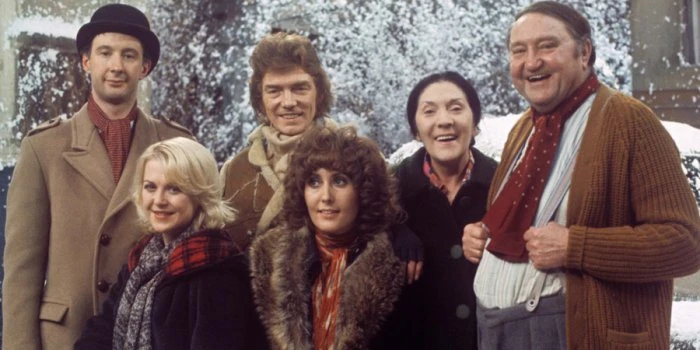
Cecil and Soper bring a fine alternative feed in the comedy as Mullard and Watts take over as the lead characters, but the cheeky charm of Beck was sorely missed. Nonetheless, LWT continued and with Mullard now becoming a household name, the characters of Wally and Lily were spun-off into another show, Yus My Dear where they found the comparative luxury of a council flat.
Chesney and Wolfe had experienced great success with their previous offerings and in reality, Romany Jones is not a great stretch from On the Buses. Working class families in cramped surroundings, husbands with dodgy schemes and little cash, consistently nagged by irritable housewives – the 70s stereotypes are all there.
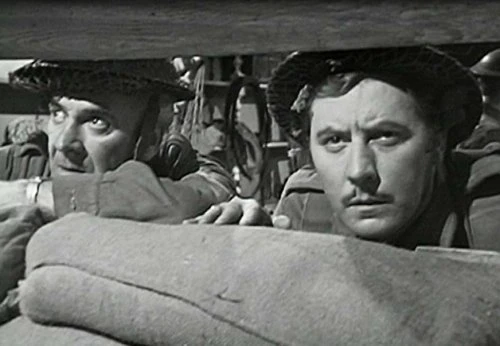
John Le Mesurier had once advised James Beck to not be too versatile and instead stick to the same character, so it’s no surprise that Romany Jones had been a success with him at the helm. Mullard became bizarrely popular off the back of his late-in-life fame and while the material may now seem dated, Romany Jones was certainly a significant commercial success that warrants more credit than it is ever seemingly afforded.
Review by Brian Slade
Seen this show? How do you rate it?
Seen this show? How do you rate it?
Published on May 21st, 2021. Written by Brian Slade for Television Heaven.



